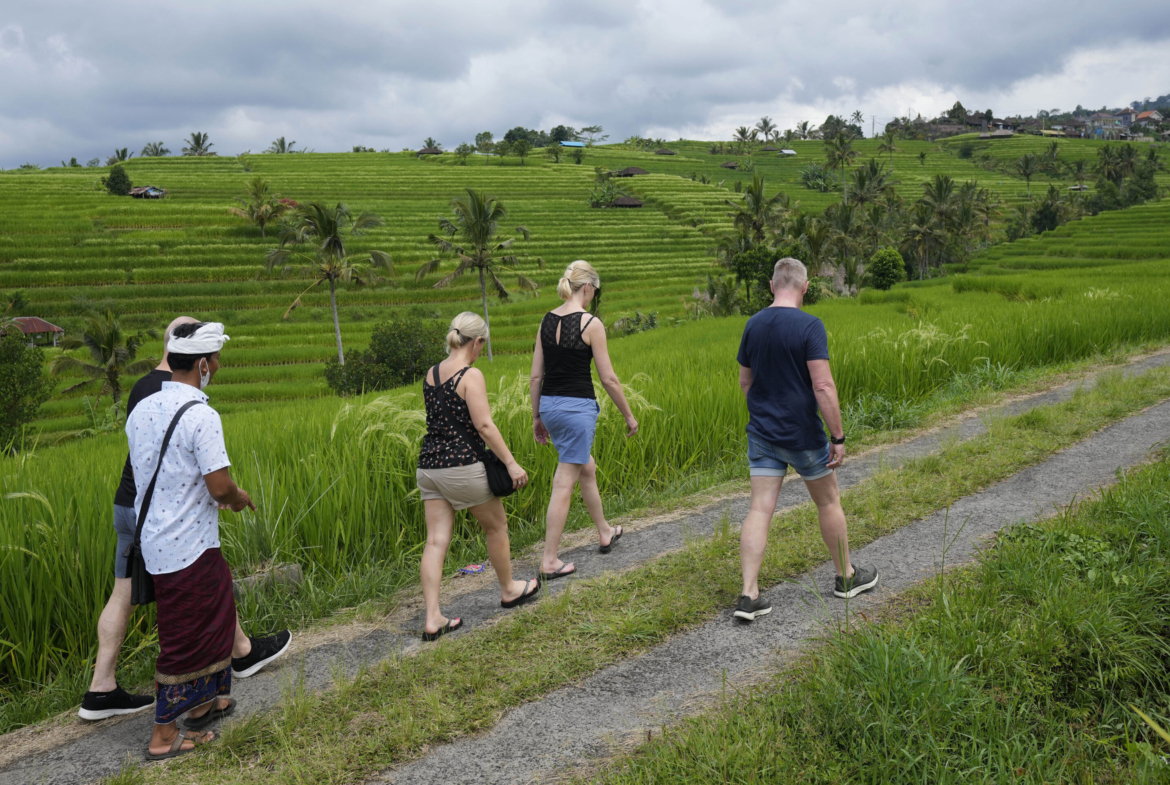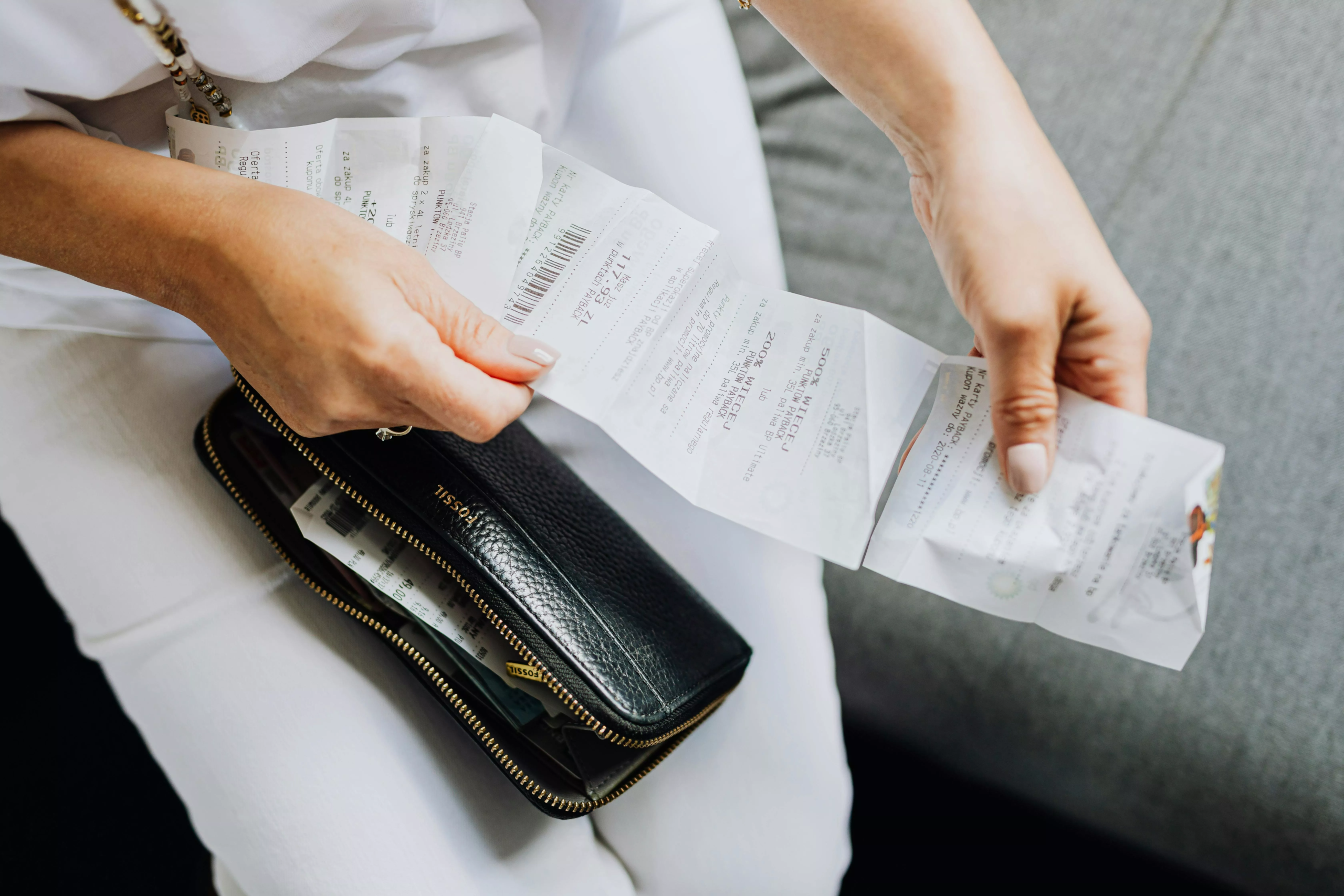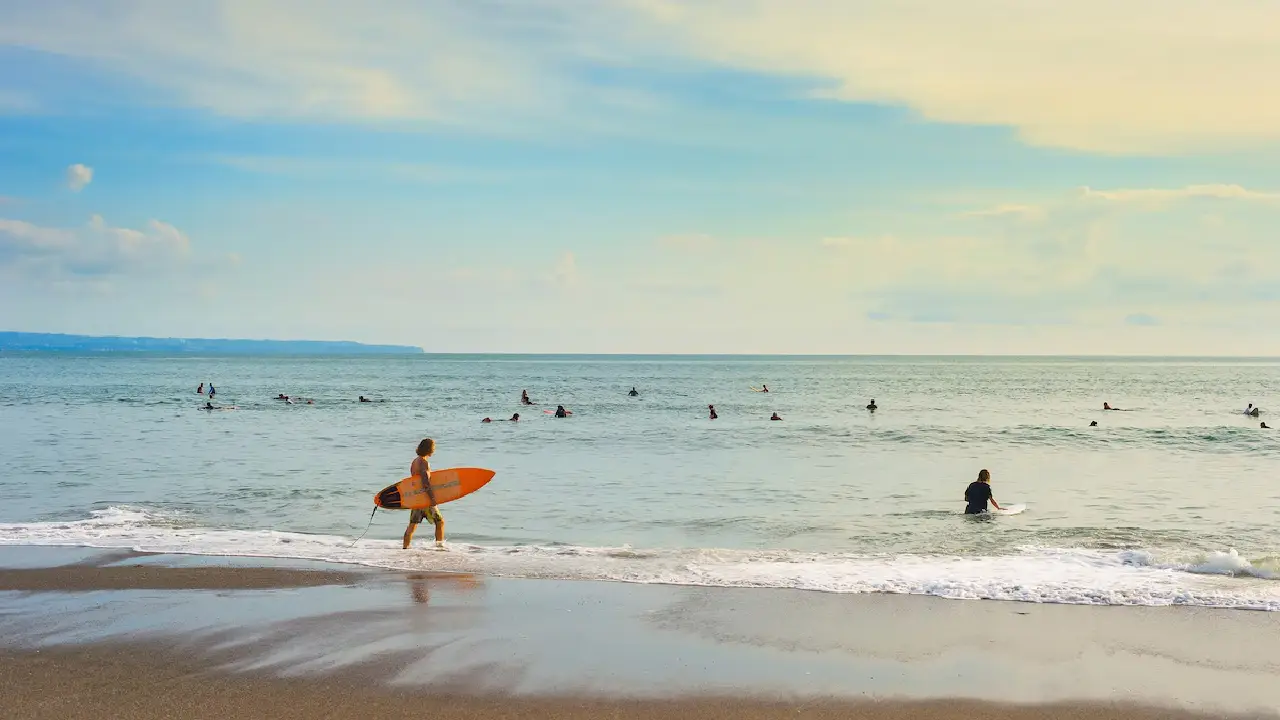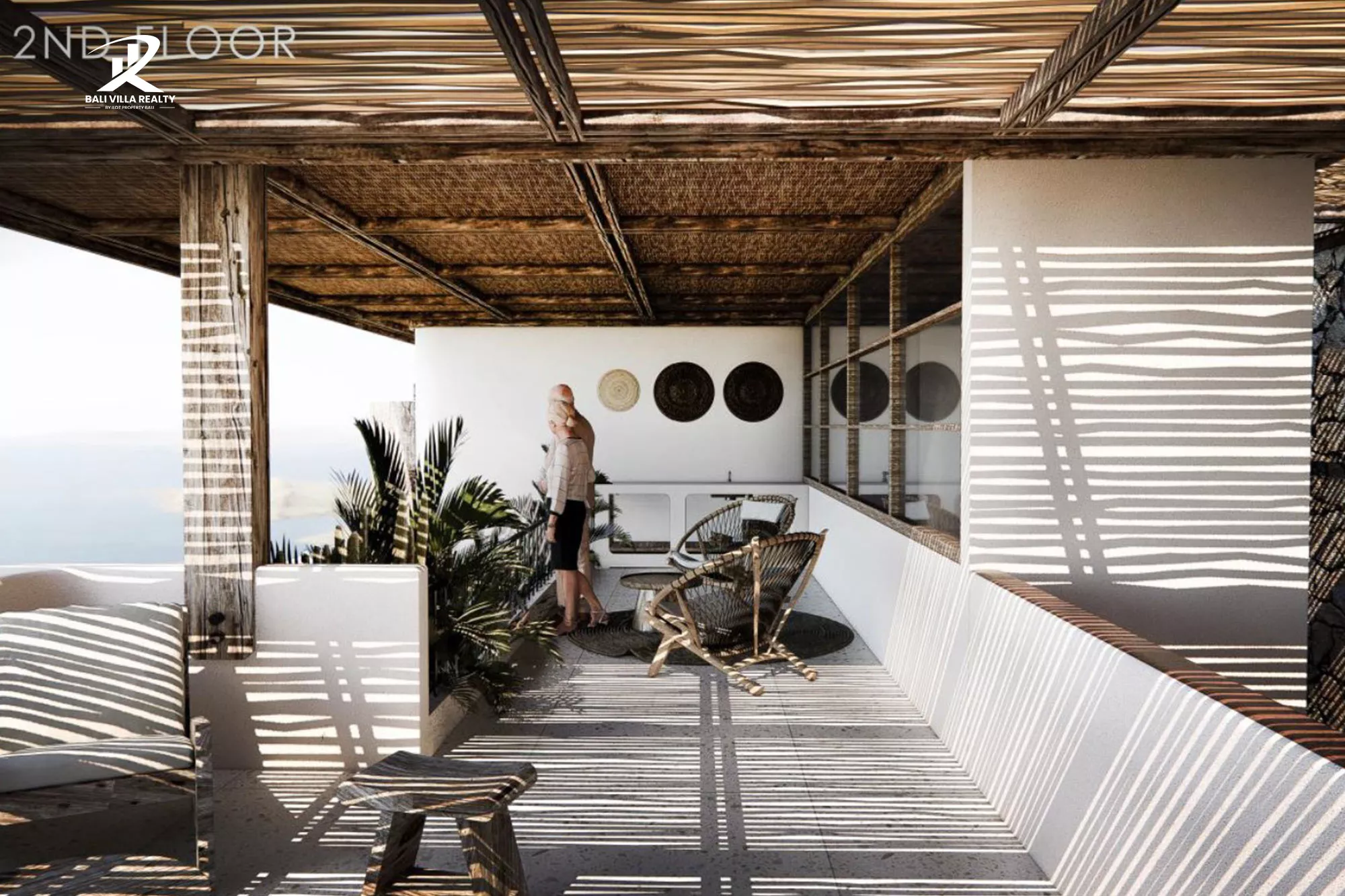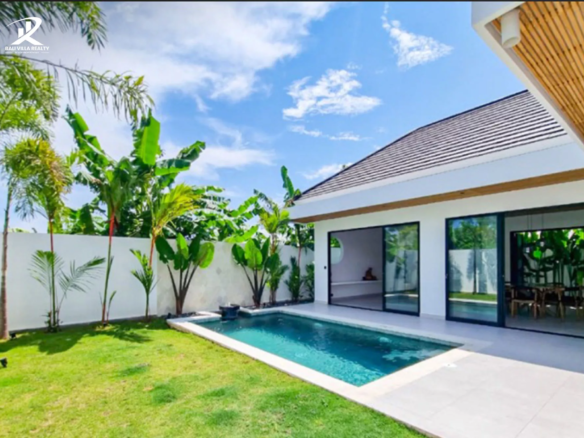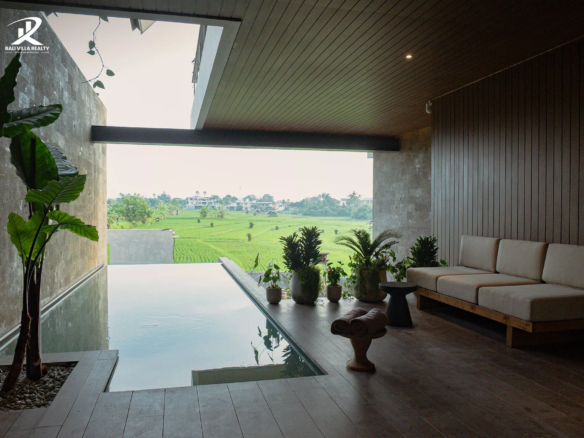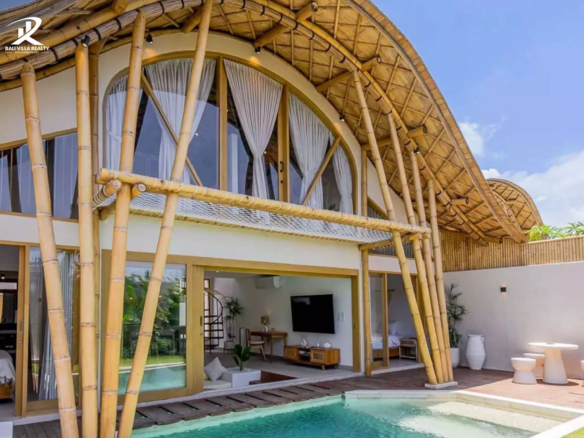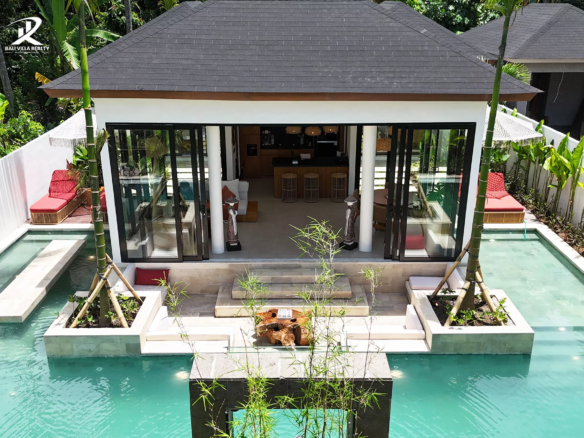Key Takeaways
- The Bali government isn’t banning all construction, but new permits for hotels, restaurants, and other facilities on productive land—especially rice fields—are prohibited, with very limited exceptions for local housing.
- You can still build villas or hotels on legally zoned (yellow zone) land with the correct permits.
- The policy aims to protect Bali’s nature, farmland, and culture—especially the subak system and rice fields—while also reducing the risk of heavy floods.
- For investors, this creates new opportunities as land in tourism zones becomes more valuable and high-quality projects gain attention.
- To invest safely, always check the land zoning and work with trusted local experts.
Bali is going through a tough time. After being hit by major floods in September 2025, the government finally took firm action by applying new restrictions on tourism development on productive land. This includes commercial accommodations and resorts.
Of course, this has raised concerns for many people—especially if you’ve been thinking about buying land or building a villa here.
But don’t worry, this isn’t the end of your dream. Bali isn’t completely stopping all construction, despite what some reports say.
We’ve looked into it closely, and we’re here to explain what’s really going on.
Bali Floods Spur Ban on New Hotels and Resorts

Recently, Bali was hit by two major floods in September. The damage went beyond financial losses—buildings and infrastructure were destroyed, hundreds of residents were forced to evacuate, and lives were lost.
In response, Bali Governor Wayan Koster announced a moratorium on building new tourism accommodations and commercial facilities as a way to prevent future floods.
This policy follows the instruction of Minister of Environment, Hanif Faisol Nurofiq, during a coordination meeting on flood handling in Bali.
Koster emphasized that regents and mayors across Bali are now banned from issuing permits for hotels, restaurants, or other facilities on productive land, especially rice fields.
The only exception is for local housing projects, and even then, permits will be given very selectively.
Read More: New Regulations Are Changing How You Buy Property in Bali
What is the New Bali Construction Policy All About?
Let’s clear things up. The government didn’t ban all construction in Bali. What they did was stop people from turning protected green land into hotels, villas, or restaurants.
In Bali, land is divided into zones, like a map. There are:
- Tourism zones (yellow) for villas, hotels, and restaurants
- Residential zones (red) for homes
- Green zones for farming, like rice fields
This new rule says: you can’t build tourist businesses on green-zone land anymore.
But if your land is already in a tourism zone, you’re good (as long as you follow the rules and have the right permits).

The Bali Government Has Already Taken Action

Governor Wayan Koster started this plan to protect Bali’s future. And it’s not just talk—he has already taken action.
Koster asked the owner of Set Up Jimbaran to lower the building’s height because it broke the rules.
Then, almost 50 illegal buildings near Bingin Beach were demolished. These businesses had been built on land that belongs to the government. Koster even visited Bingin himself to oversee the cleanup.
"It’s not just buildings, I will also take action against bad practices that pollute Bali, including shady massage parlors and closed-off spas that make our land 'dirty'. There are still nine more locations to address," he said.
All of this is part of a long-term plan called “The 100-Year Bali Development Vision” (2025–2125).
According to Koster, the goal is to make Bali a more sustainable tourism destination, without sacrificing the island’s soul for short-term profit.
Read More: Indonesia Eases Restrictions on Imported Goods: Brief Summary
Why Is Bali Doing This Ban?
Bali is a beautiful island. But too much building has started to cause real problems. Here’s why this rule matters:
1. Saving Farmland
Every year, Bali loses about 2,000 hectares of rice fields to new buildings. In Denpasar alone, 100 hectares were lost in 2023.
This isn’t just sad—it’s dangerous. The local people are starting to lose food supply, culture, and natural beauty.
2. Too Much Growth, Too Fast
The number of hotels in Bali more than doubled in ten years, from 249 to 541 in 2023.
This rapid growth has led to notorious traffic jams, water shortages in some areas, and a mounting waste management crisis.
3. Protecting Culture
Bali has a special farming system called subak, which is listed as a UNESCO World Heritage site. Subak is the lifeblood of Balinese farming and spirituality.
Now, as the rice fields disappear, so does this centuries-old cultural practice.
This ban is a necessary step to protect subak and the Balinese way of life.
Which Areas in Bali Are Affected by the Ban?

The ban mainly targets Bali’s busiest places first, like:
- Denpasar
- Badung (including Canggu, Seminyak, and Kuta)
- Gianyar (Ubud area)
- Tabanan
The other areas—like Jembrana, Buleleng, Bangli, Karangasem, and Klungkung—are also agreeing to slow down new big tourism projects.
This action is sending a clear message: Bali wants to grow in the right way. And, the era of unchecked buildings is over.
How Will This New Ban Impact Property Investment in Bali?
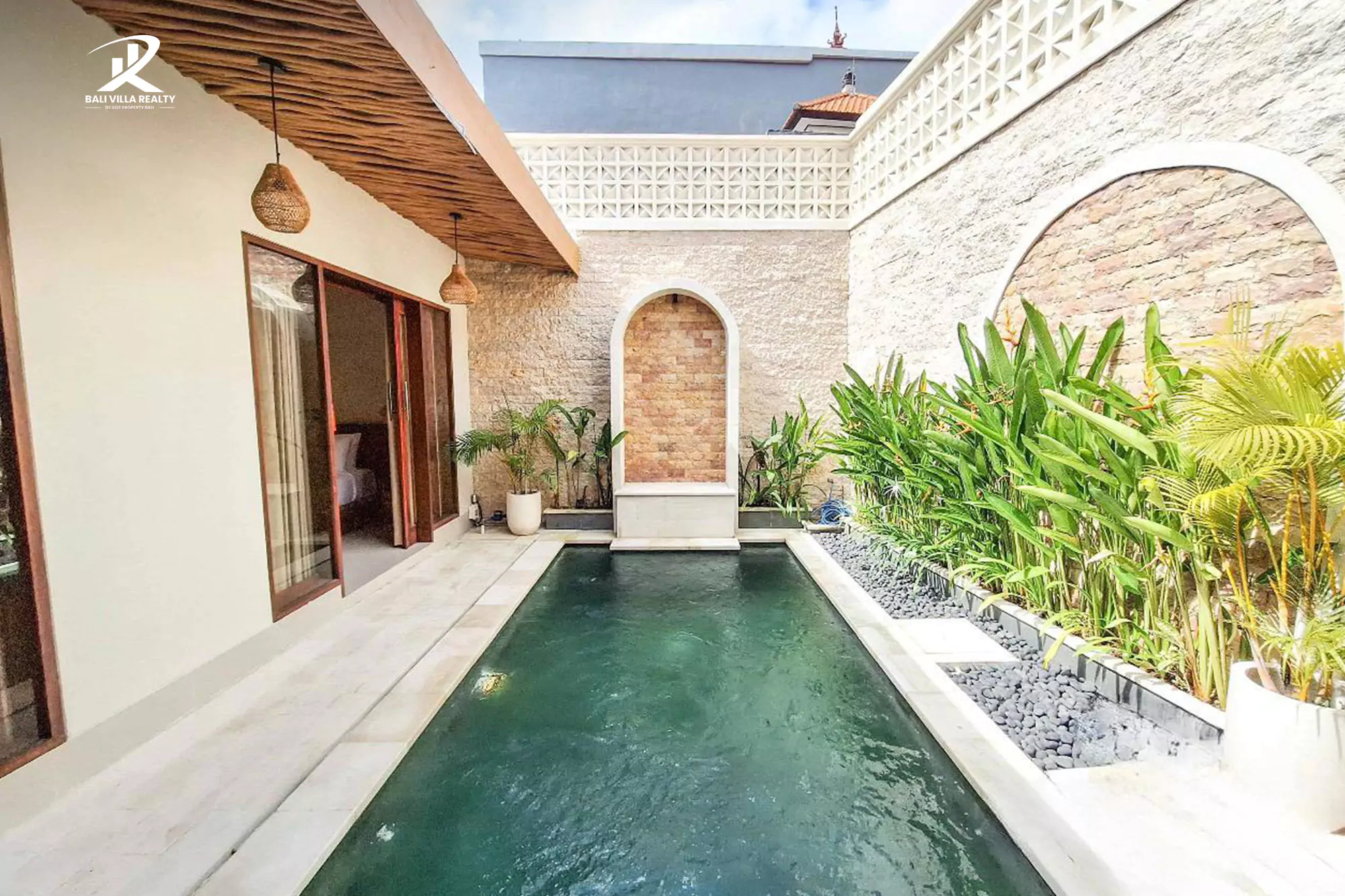
Let’s get to the big question: what does this new Bali banning rule mean for your money?
When we analyzed the situation, we realized this policy actually creates a golden opportunity for smart investors:
1. Increased Value of Zoned Land
Since no more green-zone land can turn into tourism land, the existing yellow-zone land becomes more rare and more valuable.
It’s a simple case of supply and demand. If you own or buy land in a yellow zone, your asset just becomes more valuable.
2. A Shift to Quality over Quantity
The ban forces the market to mature. Instead of a frantic race to build everywhere, the focus will shift to developing high-quality, sustainable projects on legally zoned land.
This elevates the entire market, protecting property values in the long run.
3. Higher ROI for Existing Properties
As new competition is limited, existing villas and hotels in prime locations will likely see higher occupancy rates and better rental yields.
Your existing rental property is now better protected from a flood of new, cheaper competition next door.
Read More: Invest in Bali with High ROI: Verified Guide by Trusted Local Real Estate Agent
Pros and Cons of the New Regulation
Like any big change, this new rule comes with both good sides and challenges you need to watch out for.
Pros:
- Keeps your investment safe by making land more limited
- Encourages high-quality, eco-friendly building
- Makes Bali nicer for locals and tourists
Cons:
- Good land is now harder to find
- Some investors may feel unsure at first
Pro Tips: Understanding Bali Land Zones
To navigate this new landscape, you must understand zoning. In Bali, land is primarily categorised by colour codes in its official spatial plan (RTRW).
| Zone Type | Description | Allowed for Building |
|---|---|---|
| Green Zone (Jalur Hijau) | Protected agricultural land, mainly for farming and rice paddies. Important for environmental and cultural preservation. This is where the new regulation applies. | No villas, hotels, or commercial buildings allowed |
| Yellow Zone (Zona Pariwisata) | Land for tourism development. | Villas, hotels, and restaurants allowed with proper permits (PBG) |
| Red Zone (Zona Perumahan) | Residential land for local housing. | You can build a house. Renting for tourism may require extra permits (e.g., Pondok Wisata) |
Always check the land’s zoning with the local land office (BPN) before you buy any property.
Check our complete guide to understand the process: Bali Land Zoning (2026): Guide to Check Online Map Free for Foreign Buyers

So, Can I Still Build My Dream Villa in Bali?
Yes, as long as you do it the right way. The dream is not over. It has just become more refined.
You just need to focus on finding land that’s legally zoned for tourism. Here’s our suggestion as experienced real estate agent in Bali:
- Work with Experts: Use a good real estate agency and a trusted notary / legal team. They’ll help check the land and its zoning.
- Do Your Due Diligence: Never believe someone who says, “This green land can be changed later.” That’s not how it works anymore. Demand to see the official documents.
- Think Long-Term: This policy is designed to protect Bali for the next 100 years. If you follow it, your investment will be safe for years to come.
Browse Bali Villas For Sale - Freehold & Leasehold
Conclusion: A Smarter Way to Invest in Bali
The Bali government's ban on tourism construction on productive land is actually a better beginning for locals and investors.
The Bali government’s new rule is about protecting the island’s heart and soul. You’ll see less risky buildings, see more valuable land, and find better places to live and stay easier.
If you understand the zoning and work with the right people, you can still invest wisely and help protect Bali at the same time.
Still have questions or just want some guidance? Book a free chat with our senior property advisor (no string attached, we promise!).
Want to start investing in Bali property?
Have a quick chat with our real estate experts for personalized advice on your Bali investments. No commitment required.
FAQ
Heavy rains on Tuesday and Wednesday triggered floods in Denpasar and across six of Bali’s eight regions.
The rainy season, especially December through February, is usually considered the least favorable time to visit Bali.
Yes, Bali is still safe for travel. Just make sure to be well-prepared and keep checking local news updates so you know what’s happening on the island.

